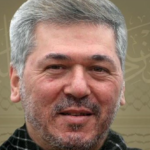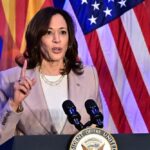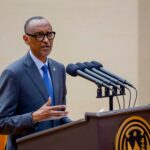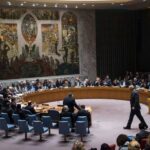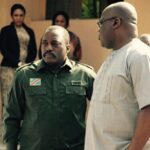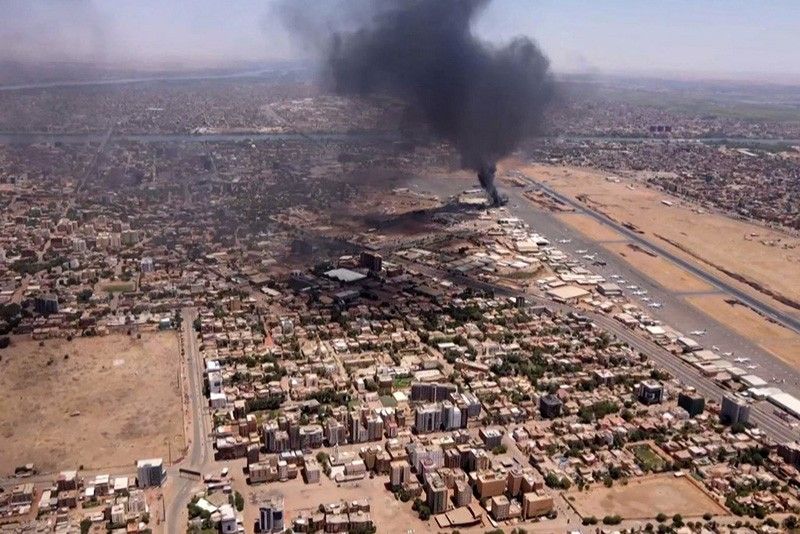In a powerful and candid inauguration speech on August 11, 2024, President-elect Paul Kagame addressed the ongoing struggles to achieve peace in the region, particularly in the conflict-ridden eastern Democratic Republic of Congo (DRC).

Despite years of diplomatic efforts and international interventions, peace remains elusive, and Kagame’s speech laid bare the fundamental reasons why this is the case.
“Peace cannot be delivered by anyone from anywhere, no matter how powerful, if the party most directly concerned does not do what is needed,” Kagame said.
This statement emphasized that peace efforts cannot succeed if the parties directly involved in the conflict do not take the necessary steps. His words were a clear reminder that external forces, no matter how strong, cannot impose peace where there is no commitment from those at the heart of the conflict.
“You can’t wake up one day and decide to deny whoever you want their citizenship rights and expect to get away with it,” The Head of State warned.
Over the years, numerous initiatives have been launched to address the security challenges in eastern DRC. Diplomatic interventions, peace agreements, and mediation by regional leaders have all played crucial roles.
Kagame specifically acknowledged the contributions of Kenya and Angola’s leadership in these efforts.
“I would like to thank the President of Angola, President João Lourenço, and the President of Kenya, President William Ruto, among others, for everything they have done and continue to do,” he said, expressing gratitude for their dedication to regional stability.
However, despite these efforts, Kagame pointed out that peace cannot be achieved without a genuine commitment from those directly involved in the conflict.
“Peace cannot happen all on its own. We all have to do our part, and the right things, in order to achieve and sustain peace,” he emphasized.
The failure to address fundamental injustices, such as the denial of citizenship rights to certain groups, has been a significant barrier to peace. “There has to be a meeting in the middle. There has to be a compromise,” Kagame stressed, highlighting the importance of dialogue and mutual understanding.
Kagame also spoke about the broader global context, criticizing the double standards and unaddressed inequalities that have exacerbated regional conflicts. He called for a more just and equitable approach to international relations, where powerful nations do not impose their will on others.
“There is no longer room for the powerful to impose their vision about how others ought to live, or to create narratives that falsify the truth. This must always be resisted, even when under pressure,” he cautioned.
The President also highlighted the role of the African Union in promoting regional security and development. Since its establishment, the African Union has been instrumental in fostering a more integrated and secure Africa.
Kagame pointed to Africa’s progress in areas such as security, health, infrastructure, and youth employment as evidence that the continent is taking responsibility for its own challenges and offering homegrown solutions.
“That is the mindset that brings us closer together and creates positive change over time for everyone,” he said, emphasizing the importance of African unity and self-reliance.
Kagame expressed optimism about the future, both for Rwanda and the broader region, imploring the need for continued hard work and dedication to achieving lasting peace and development.
“Why not do even better than we have done? That expectation to keep improving is not a dream, it is realistic. We can do it, and we will do it,” Kagame declared.
Peace has remained elusive in the region despite numerous efforts and while external interventions are important, true peace can only be achieved when those directly involved take responsibility and commit to the necessary compromises and actions.
The ongoing efforts by regional leaders and the African Union provide a strong foundation, but it is up to the local actors to make peace a reality.
This fourth presidential term is a challenge for all leaders and citizens to rise to the occasion and work together to build a stable, secure, and prosperous future for all.

